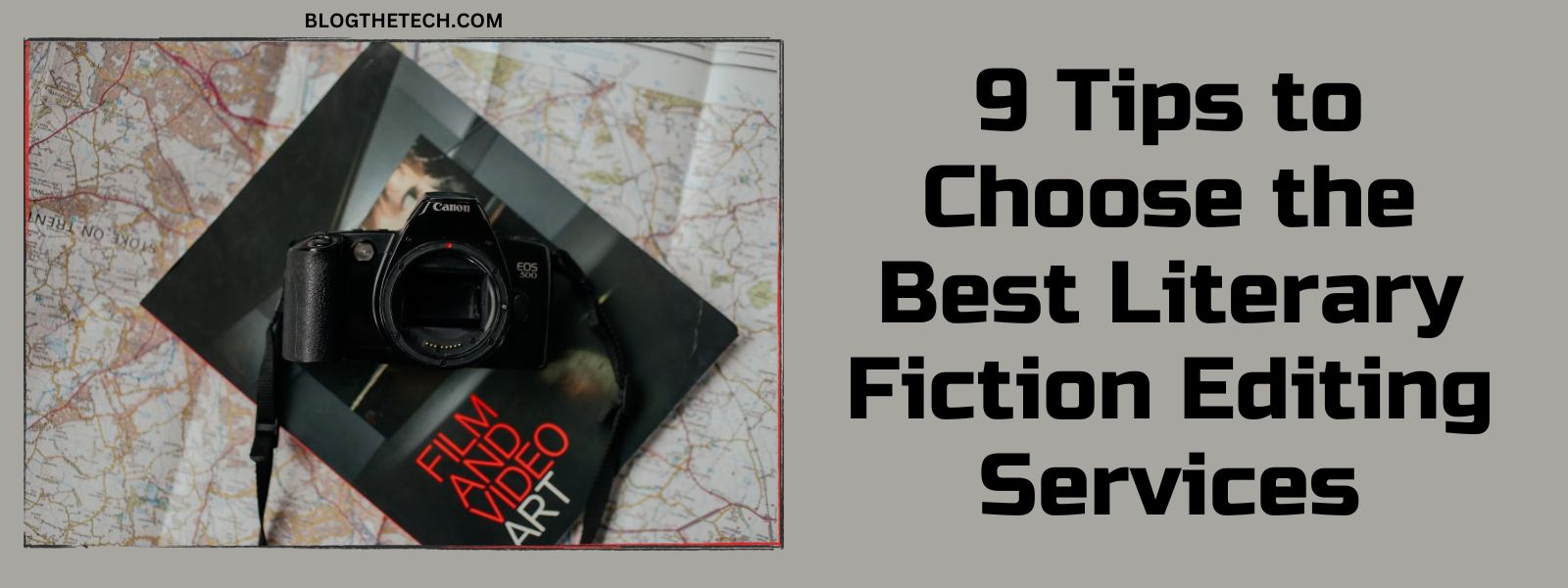If you are reading this, it means that you have already completed or are about to complete your literary fiction. Looking back, you must be proud of yourself and take your time to celebrate such a meaningful achievement.
The next challenging but meaningful step is to find an editor who can help you bring out the best in your manuscript. A literary fiction editor is someone who has the right experience and skills to help you make your work stand out.
Here are some of the best tips you need to choose a literary fiction editing service.
Rethink Your Budget
Every author wants to hire the best services for their book to bring out the best in their work. However, the one thing you must always consider is your budget. After all, a literary fiction editor is not the only professional you need on board.
Before you rush into hiring a literary editor, take some time to divide your budget neatly. It is best to stay within your financial limits to ensure that you do not endure loss before you even start earning from your work.
Consider their Experience
Another important factor to consider is your literary editor’s experience. The more experience a literary editor has, the more you can rely on them to improve your work.
Of course, you must always remember that experience, in this case, does not refer to their editing experience in any genre of literature. It is better to find a professional editor with proven experience in editing literary fiction work and client satisfaction.
You do not have to hesitate to ask the literary fiction editor to tell you about their experience. Learning about the years of experience and work in the genre can help you make your choice with confidence.
Verify Confidentiality
When you work with an editor, you want to ensure that they care for your confidentiality. It may be an author’s worst fear to trust someone with your work who may put your privacy at risk.
It is always a good idea to create a contract between you and your editor. A contract does not only help you define roles and the editor’s duties. It also helps you ensure that the editor will value your privacy for your peace of mind.
Ask for Samples
Every author will agree that they cannot trust anyone’s word alone when hiring. They need some guarantees to form a partnership. When you are in the same position, it is always a good idea to ask for a literary fiction editor you are considering for their work samples.
Accessing the work samples of the author with whom you are considering to work with can help you learn more about their skills and become surer about trusting them with your work. You can see how they can bring out the best in your manuscript.
Inquire About Genre Expertise
Just because an editor is known for their exceptional editing skills does not automatically make them a right match for your work. After all, there are so many genres of literature, and thousands of books are published every year. It is likely that they may have never worked with authors of literary fiction.
Authors are always recommended to work with a professional editor who has satisfactory experience in your book genre. Their expertise can be a guarantor of their skills to improve your manuscript.
Go Through Testimonials
If you are a novice author, you may make the regrettable mistake of taking an editor’s word for their skills and expertise. If you trust their word, they can easily convince you that they are the best option in the market.
One of the best approaches is to ask the editor for testimonials. If they are confident about their skills and expertise, they will have no reason to hesitate to share them. They can help you gauge the satisfaction of their previous clients.
You can also read their public reviews to determine their satisfaction, compare your options, and make the right call.
Discuss the Editing Approach
Every editor has a different editing approach. Their approach will determine how they will proceed with editing your manuscript. Therefore, the next crucial thing to consider is the editor’s editing approach and whether it aligns with your vision.
If their editing approach does not align with yours, it can cause problems in your professional partnership with your literary fiction editor.
Before you finalise your partnership with them, have a detailed conversation with the editors to understand their editing process and how they work.
Query About Additional Support
An editor does not have the skills to only help you eradicate grammatical errors and strengthen your plotlines. They can also offer additional support in many ways based on their expertise and experience in the field.
This additional support can be very helpful for literary fiction authors, especially if these authors are publishing their first book.
Instead of expecting additional support as a part of the deal from your literary fiction editor, ask them what they have to offer.
Will they help you write a query letter? Or will they be comfortable providing you with publishing guidance based on their expertise? You can get the answers to your questions simply by posing direct questions before hiring a literary fiction editor.
Set Clear Expectations
When you form a professional relationship, remember to leave no room for miscommunication. You must establish clear communication with your editor to ensure that both parties involved are not surprised.
Firstly, you must set clear communication channels in place for feedback and questions of both parties.
Once the communication channels are in place, you must let the editor know about all the important aspects, such as the scope of work, timelines, and pricing, before starting the editing process. Do not forget to discuss the number of rounds of revisions included in their services. It is likely that you will need to put your negotiation skills to use at this point.

